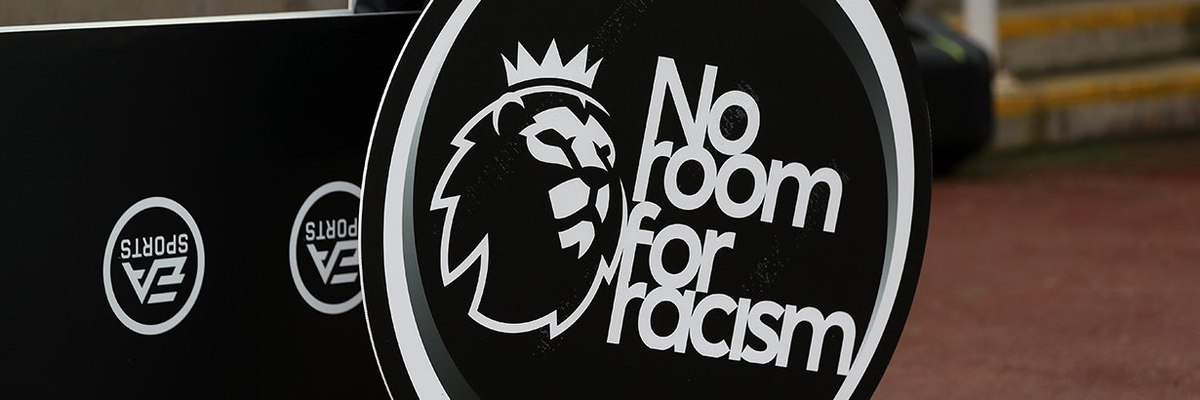YouGov surveys 4,500 football fans in nine European nations
Discussions around the issue of racism in society have become more prevalent than ever following the death of George Floyd and the rise of the Black Lives Matter movement. The same is true in football. High profile current and retired players – such as Raheem Sterling, Tyrone Mings, Marcus Rashford, Micah Richards and Ian Wright – have all shared the abuse they have received.
Following numerous incidents this year alone, the first weekend of May saw clubs, players and media organisations take part in a social media boycott to highlight the issue of racial abuse against players online.
Now, newly released international research from YouGov among over 4,500 football fans in nine European countries - conducted in most countries in February and March, with updated data for England from mid-June - reveals how supporters view racism in the sport, the efforts of players, fans, clubs and the game’s authorities to tackle it, and how seriously offenders should be punished.
How do fans in different countries see the issue of racism in football?
Awareness of the issue is widespread, and certainly not contained to fans of the sport alone. In all the nations surveyed, a majority of the general population acknowledged that racism is a problem for football – with awareness higher among fans. The vast majority of fans in all of the countries surveyed recognise the existence of racism in the sport, but there is a big difference between nations of how many fans see racism in football as a serious issue.
The most likely say to say so are ethnic minority football fans in Great Britain, 92% of whom say racism exists in professional football, including 78% who say racism is a serious issue affecting the sport.
Over nine in ten fans in countries such as the Netherlands (92%), England (90%), Wales (91%), and Scotland (91%) also say racism exists within professional football. In France some 88% fans agree that racism exists in football, and are the most likely on the continent (64%) to say racism is a serious problem within football.
The divide among fans in Great Britain is approximately the same across the three nations, with over half of fans in England (54%), Wales (56%), and Scotland (56%) thinking racism in professional football is a serious issue – while around a third in each country say that although it does exist, it’s not a serious problem.
Sentiment is similar among the 85% of football fans in Italy who say racism exists in football, with around half (54%) deeming it a serious issue. Elsewhere on the continent however, less than half of fans tend to think racism is a serious issue, but still recognise that it does exist for the sport. In Portugal some 76% of fans acknowledge the presence of racism but only 41% say it’s a serious issue, as do 39% of German fans, 38% of Dutch fans, and 37% of Spanish fans,
Spain is the country with the highest proportion of fans who think there is no racism in football (22%), followed by Portugal (18%).
Has professional football as a whole under reacted to the issue of racism?
Following the enormous public outcry over the European Super League, Leeds striker Patrick Bamford questioned why there was not a similar impassioned uproar from fans over various incidents of racism in the sport. However, this survey reveals that some fans take the direct opposite view to Bamford, and see the reaction from players, staff, and clubs to the issue of racism as underwhelming.
Unsurprisingly, half (50%) of ethnic minority football fans in Great Britain say the response from the sport as a whole was been one of under reaction, compared to a quarter (25%) who think it has been handled about right, and some 16% who say the sport has overreacted to the issue.
Other groups of fans lean towards thinking the reaction of the professional football has been about right, none more so than Italian fans (59%), followed by 46% of those in the Netherlands, and 45% of Spaniards. In Portugal, 43% think that the response has been correct, while 37% think it has been an overreaction.
Opinion is more divided across Great Britain, with around one in three fans in England (35%), Wales, (36%) and Scotland 36% thinking professional football has reacted correctly to the issue of racism within the sport – while another 26%, 30% and 28% respectively think there has been an under reaction to the issue. Around a quarter of fans across the three nations (30% in England, 24% in Wales and 25% in Scotland) think that there has been an overreaction to the issue however.
Football fans do not think they are doing enough to combat racism in the sport
Aston Villa and England defender Tyrone Mings said in April that players can act as "pioneers" in tackling racism in football, following his own experience of abuse on social media. However, when asked many football fans across Europe tend to think football players are already doing enough in the fight against racism – and that it’s fans themselves who are letting the side down.
Less than one fifth of fans in each country polled thinking that fans are doing enough to tackle racism in football. While opinion of fans’ efforts to combat racism in football is fairly consistent across the groups, it is lowest among ethnic minority football fans in Great Britain, and fans in Italy, of whom only one in ten (10%) think fans are doing enough to kick racism out of football.
When it comes to player efforts, over half of fans in Wales (58%), Spain (55%), the Netherlands (54%) and England (66%) already think football players are doing enough to tackle racism in their sport, as do 49% of Portuguese fans, 48% of fans in Italy, and 47% of Scottish fans.
Ethnic minority football fans in Great Britain (43%), alongside German (43%) fans, are among the least likely to think players are doing enough, however, with French people the least likely to think so (35%).
When it comes to football clubs, fans in the Netherlands are the most likely to say clubs are doing enough to tackle racial abuse, with half thinking so (50%).
In Great Britain around two fifths of fans think clubs are doing enough, including 47% of English fans, 43% of Welsh fans, and 39% of Scots. However, only a quarter of British ethnic minority football fans (27%) are impressed by club efforts to deal with racism, among the least likely to think so, alongside three in ten French fans (30%).
Fans on the whole are less impressed with national football associations. While 49% of those in the Netherlands say these bodies are doing enough, in Britain only around three in ten fans (29% in Wales, 36% in England, and 31% in Scotland) think the same, and again opinion of this group’s efforts is lowest among British ethnic minority football fans (15%).
Opinions of international football associations, such as FIFA and UEFA, are also particularly low amongst fans in Great Britain (20-25% across England, Scotland and Wales) when compared to the continent (26-45% across the other European nations surveyed). This includes some two in five fans from Spain (45%), Italy (43%) and Portugal (43%) who think international football groups are doing enough to tackle racism.
Since our initial fieldwork, debate has continued over players taking the knee. The English and Scottish Euro 2020 teams jointly took the knee ahead of their nil-nil draw, however other teams in the competition chose not to. Despite this, there is a sense among English football fans that players have been increasingly stepping up in the fight against racism in the game: the number of people thinking players have been doing enough rose from 53% in the first study in March to 66% in June, by which time the tournament was already underway.
However, opinion of fans’ efforts to tackle racism remain low - only 20% of English football followers thinking fans are doing enough. Fans themselves (68%) think they can do more to cut out racism, and they may well get a chance to do so themselves, as the FA has urged fans to report incidents of racism they witness.
Fans think current punishments for incidents of racism aren’t harsh enough
New duty of care laws are set to be unveiled next month in Britain aimed at social media platforms that fail to crack down on racial abuse, including comments made by football fans. Regulated by Ofcom, the laws will see platforms that fail to remove abuse facing hefty fines.
Social media platforms and Ofcom are not the only ones with a duty to punish incidents of racial abuse in football, with governing football associations also charged with policing the actions of their players, staff or fans. However, many fans across Europe think that punishments dished out following incidents of racism are not harsh enough. Over half of ethnic minority football fans in Great Britain think that domestic clubs (57%), national teams (59%) and national football associations (59%) are not punished harshly enough by leading football authorities following racist behaviour by their fans or players.
Opinion is similar across England (48%), Scotland (47%) and Wales (47%), versus some 28%, 28% and 20% respectively that think that the current punishments levied against domestic clubs are about right. Very few (3-6% in each nation) think they are punished too harshly.
On mainland Europe however, fans tend to be more split over whether punishments are not harsh enough, or about right. For example, while 45% of Spanish fans think punishments against domestic clubs are not harsh enough, some 43% think are about right, with a similar split of 42% versus 45% among Italian fans.
This pattern between Great Britain and the mainland is repeated for punishments against both national football teams and national football associations. Fans in England (55% and 56% respectively), Scotland (49% and 52%), and Wales (54% and 56%) tend to think punishments are not harsh enough.
Elsewhere in Europe fans are closely split, or lean towards thinking that punishments against these groups are about right following incidents of racism. German fans are split 38% to 39% between thinking that national football teams are not punished harshly enough, and those that think that punishments are about right for example. Meanwhile, some 46% of Spanish fans think current punishments against national teams are about right, compared to 39% who think they are not harsh enough.









